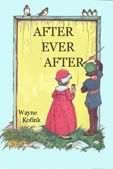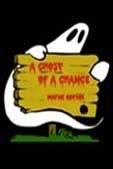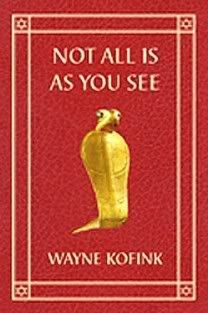WHAT WAS ON THOSE TABLETS OF STONE?
Like all good Lutheran children, I had to memorize the Ten Commandments and the explanation from Luther’s Small Catechism. This was long before everybody and their uncle wanted to stick up huge stone monuments with the Commandments chiseled into them. We just memorized them and were supposed to live by them which to my mind is a lot better than trying to plaster them all over the place. Nevertheless, some reading I have been doing makes me question exactly what should be on those stone monuments. What are the Ten Commandments that Moses had? This is not as simple as it sounds.
Of course the Ten Commandments should be written in Hebrew because that’s the way they are in the original Bible, although I am not that certain the ancient Hebrews actually spoke or read Hebrew before they moved into the promised land, but we’ll let the language issue slide. Let’s just use and English translation. Here’s a stone tablet type presentation of the Ten Commandments I found on the Internet.

Is it right? Jews and most Protestants would say it is correct. But if you are Lutheran or Roman Catholic, you’d say there was something wrong with them. The way we learned the commandments, the second commandment was, “You shall not take the name of the Lord your God in vain,” which in the illustration is the third commandment. We read the commandment about graven images as an elaboration of “You shall have no other gods.” Then to make up the number ten, we have two commandments about coveting at the end.
What’s going on here? Well the account in Exodus 20 doesn’t number the commandments. In fact it doesn’t even say there are ten commandments (at least not here.) I count eleven commandments, nine negative ones and two positive ones, but will let that slide also.
The same commandments (more or less) appear in Deuteronomy (which means the second law because, well the commandments are here a second time.) The difference is that where as Exodus explains the meaning of the Sabbath day in terms of the seventh day of creation when God rested, the Deuteronomy version explains it as a reminder of the days when Israel was in slavery in Egypt.

Now everybody remembers the great movie The Ten Com- mandments when Charleton Heston goes up on Mount Sinai, and God writes the com- mandments on two tablets of stone. (Very nice special effect. Even used an ancient form of writing for authenticity.) However, in the book of Exodus there isn’t any writing of the commandments on stone right after they are announced. After the com- mand- ments are spoken by God, the people tell Moses: “You speak to us, and we will listen; but do not let God speak to us, or we will die” (Exodus 20:19).
So Moses goes up to the mountain and God starts giving Moses a whole bunch of other commandments. For example: “You shall not make gods of silver alongside me, nor shall you make for yourselves gods of gold” (20:23). And “When you buy a male Hebrew slave, he shall serve six years, but in the seventh he shall go out a free person, without debt” (21:3) and a whole lot more, three chapters of laws, which Moses writes down. Then there is a party on the mountain with seventy elders, and only then does God talk about the stone tablet: “The LORD said to Moses, ‘Come up to me on the mountain, and wait there; and I will give you the tablets of stone, with the law and the commandment, which I have written for their instruction’” (24:12).
But wait there’s more. Moses goes up the mountain for forty days and gets seven chapter of instruction about building the Tent of Meeting and building altars and so forth. And only then does the narrative say: “When God finished speaking with Moses on Mount Sinai, he gave him the two tablets of the covenant, tablets of stone, written with the finger of God.” Anybody sure what was written on those tablets? It doesn’t matter because when Moses brings them down the mountain and finds the people worshiping a golden calf, he smashes the tablets.
Fortunately God replaces them. “The LORD said to Moses, ‘Cut two tablets of stone like the former ones, and I will write on the tablets the words that were on the former tablets, which you broke.’ . . . So Moses cut two tablets of stone like the former ones; and he rose early in the morning and went up on Mount Sinai, as the LORD had commanded him, and took in his hand the two tablets of stone” (34:1, 4).
Now we get the commandments:
“Take care not to make a covenant with the inhabitants of the land to which you are going, or it will become a snare among you. {13} You shall tear down their altars, break their pillars, and cut down their sacred poles {14} (for you shall worship no other god, because the LORD, whose name is Jealous, is a jealous God).
{15} You shall not make a covenant with the inhabitants of the land, for when they prostitute themselves to their gods and sacrifice to their gods, someone among them will invite you, and you will eat of the sacrifice. {16} And you will take wives from among their daughters for your sons, and their daughters who prostitute themselves to their gods will make your sons also prostitute themselves to their gods.
{17} You shall not make cast idols.
{18} You shall keep the festival of unleavened bread. Seven days you shall eat unleavened bread, as I commanded you, at the time appointed in the month of Abib; for in the month of Abib you came out from Egypt.
{19} All that first opens the womb is mine, all your male livestock, the firstborn of cow and sheep. {20} The firstborn of a donkey you shall redeem with a lamb, or if you will not redeem it you shall break its neck. All the firstborn of your sons you shall redeem. No one shall appear before me empty-handed.
{21} Six days you shall work, but on the seventh day you shall rest; even in plowing time and in harvest time you shall rest.
{22} You shall observe the festival of weeks, the first fruits of wheat harvest, and the festival of ingathering at the turn of the year. {23} Three times in the year all your males shall appear before the LORD God, the God of Israel. {24} For I will cast out nations before you, and enlarge your borders; no one shall covet your land when you go up to appear before the LORD your God three times in the year.
{25} You shall not offer the blood of my sacrifice with leaven, and the sacrifice of the festival of the passover shall not be left until the morning.
{26} The best of the first fruits of your ground you shall bring to the house of the LORD your God.
You shall not boil a kid in its mother's milk.
{27} The LORD said to Moses: Write these words; in accordance with these words I have made a covenant with you and with Israel. {28} He was there with the LORD forty days and forty nights; he neither ate bread nor drank water. And he wrote on the tablets the words of the covenant, the ten commandments. (Exodus 34:12-28)
Here is where we get the information that there are ten commandments. But did anybody notice that these aren’t the same as the commandments we started with?
So exactly what was written on those tablets of stone? Deuteronomy tries to straighten things out this way: Moses is speaking. “At that time the LORD said to me, ‘Carve out two tablets of stone like the former ones, and come up to me on the mountain, and make an ark of wood. {2} I will write on the tablets the words that were on the former tablets, which you smashed, and you shall put them in the ark.’ {3} So I made an ark of acacia wood, cut two tablets of stone like the former ones, and went up the mountain with the two tablets in my hand. {4} Then he wrote on the tablets the same words as before, the ten commandments that the LORD had spoken to you on the mountain out of the fire on the day of the assembly; and the LORD gave them to me. {5} So I turned and came down from the mountain, and put the tablets in the ark that I had made; and there they are, as the LORD commanded me” (Deuteronomy 10:1-5). In short, the same Ten Commandments we had in Exodus 20 were written on the first set of stone tablets and then again on the second set. It sure would be hard to figure that out from what is written in Exodus.
Maybe some day I’ll get around to some theories about why the Exodus account is so confusing. Meantime another question. What ever happened to the stone tablets? And if you tell me they’re in a government warehouse some place, I’ll say you’ve been watching too many Indiana Jones movies.
May the Lord bless you on your journey and greet you on your arrival.
Wayne
11945
Labels: Ten Commandments













